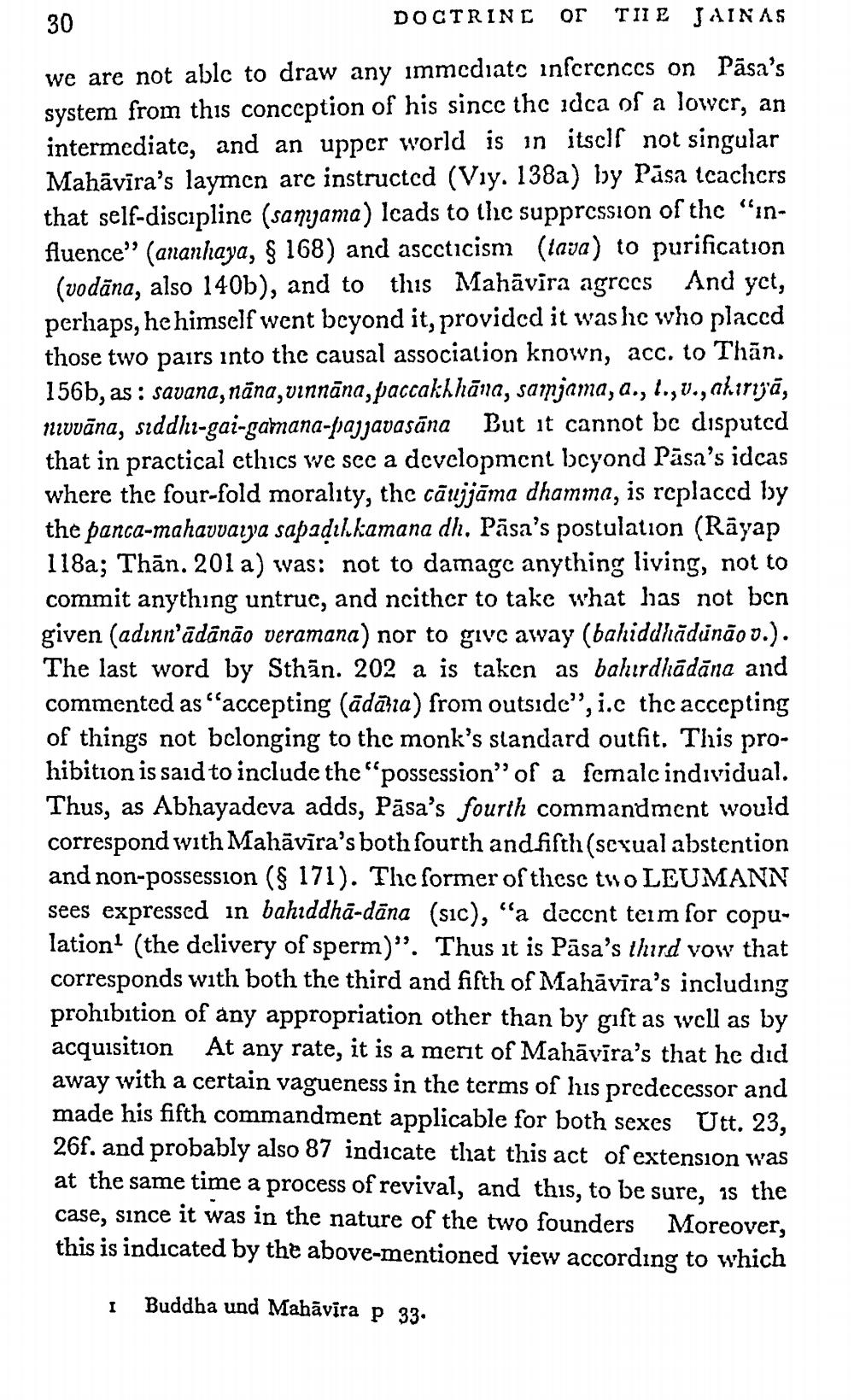________________
THE JAINAS
30
we are not able to draw any immediate inferences on Pasa's system from this conception of his since the idea of a lower, an intermediate, and an upper world is in itself not singular Mahavira's laymen are instructed (Viy. 138a) by Pasa teachers that self-discipline (sanyama) leads to the suppression of the "influence" (ananhaya, § 168) and asceticism (tava) to purification (vodāna, also 140b), and to this Mahavira agrees And yet, perhaps, he himself went beyond it, provided it was he who placed those two pairs into the causal association known, acc. to Than. 156b, as: savana,nāna, vinnāna, paccakhhāna, samjama, a., t., v., ahırijā, nuvvana, siddhi-gai-gamana-pajjavasana But it cannot be disputed that in practical ethics we see a development beyond Pasa's idcas where the four-fold morality, the cāujjāma dhamma, is replaced by the panca-mahavvaiya sapaḍıkkamana dh. Pasa's postulation (Rayap 118a; Than. 201 a) was: not to damage anything living, not to commit anything untrue, and neither to take what has not ben given (adınn'ādānão veramana) nor to give away (bahiddhādināo v.). The last word by Sthan. 202 a is taken as bahırdhādāna and commented as "accepting (ādāna) from outside", i.c the accepting of things not belonging to the monk's standard outfit. This prohibition is said to include the "possession" of a female individual. Thus, as Abhayadeva adds, Pāsa's fourth commandment would correspond with Mahavira's both fourth and fifth (sexual abstention and non-possession (§ 171). The former of these two LEUMANN sees expressed in bahiddha-dāna (sic), "a decent term for copulation' (the delivery of sperm)". Thus it is Pasa's third vow that corresponds with both the third and fifth of Mahavira's including prohibition of any appropriation other than by gift as well as by acquisition At any rate, it is a merit of Mahavira's that he did away with a certain vagueness in the terms of his predecessor and made his fifth commandment applicable for both sexes Utt. 23, 26f. and probably also 87 indicate that this act of extension was at the same time a process of revival, and this, to be sure, is the case, since it was in the nature of the two founders Moreover, this is indicated by the above-mentioned view according to which
I Buddha und Mahāvīra p 33.
DOCTRINE
ΟΙ




